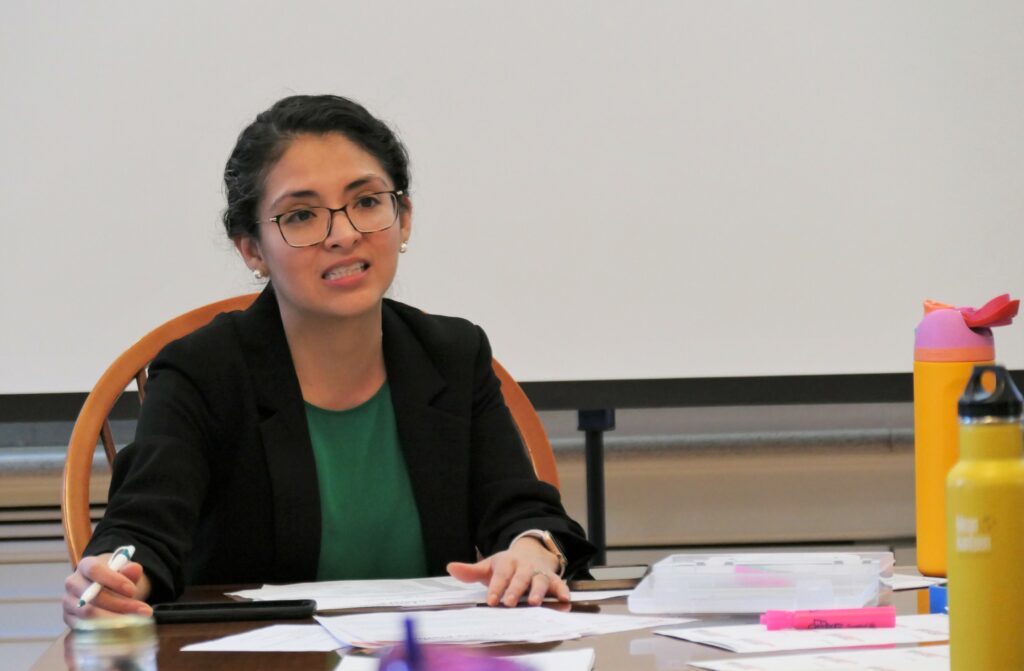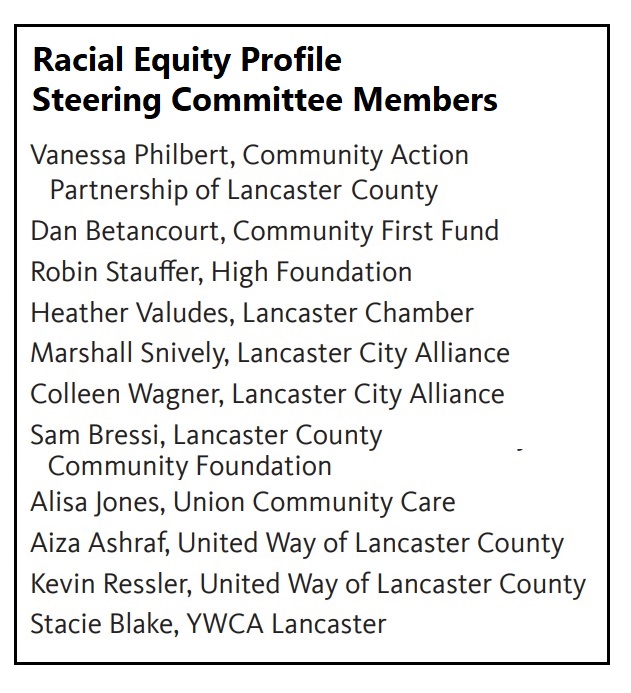“I do want this group to be collaborative,” Isabel Castillo said.
Castillo was speaking toward the end of the first Lancaster County Racial Equity Profile action team meeting. Convened by YWCA Lancaster, it brought just over a dozen individuals to the organization’s North Lime Street headquarters to discuss the profile and how to organize action and advocacy around it.

YWCA anticipates the action team eventually becoming an independent, community-led entity with its own agenda. To get things starting, it is hosting monthly meetings.
The profile was released in January and has since been the topic of multiple community meetings — most recently, it was presented at the Lancaster Justice Seekers Collective’s town hall.
Members of the steering committee that commissioned it are encouraging organizations across the county to embrace it and use it as a blueprint for change.
The community members who gathered on Thursday decided their first step should be an asset map — an inventory of organizations involved in work related to the profile, along with any personal connections they themselves might have to them. As a starting point, they plan to comb through the local social services organizations listed in United Way’s 211 database.

Aiza Ashraf, director of equity & community impact for United Way of Lancaster County, was a member of the profile steering committee. She asked if a short training program on how to talk about the profile would be helpful: It would, those around the table agreed.
United Way leaders have been discussing developing one, she said: It would involve highlighting a few of the key data points among the hundreds in the report and linking them to lived experience in a way people can relate to. It will be ready by the group’s May meeting, and possibly in time for April’s, she said afterward.
The Rev. Jason Perkowski briefed the group on the work on law enforcement and criminal justice of faith-based nonprofit Power Interfaith and other advocacy groups. They are advocating for bail reform, the expansion of diversionary programs and other measures that they believe will make Lancaster County’s justice system more equitable and reduce the local inmate population, allowing the new correctional facility that the county is planning to be smaller.
The group discussed whether it might be most effective by bringing existing groups together to collaborate on issues in the profile, rather than taking independent action on its own. Karen Rice, a professor of social work at Millersville University, suggested developing indicators of success for organizations to strategize around, such as metrics for what equitable health countywide would look like.
A benefit of Lancaster being a relatively small community is that ordinary citizens who take initiative can be influential, said Beth Beam, a leadership consultant and former university administrator.
“I think this is a group that really wants to make change,” she said.






